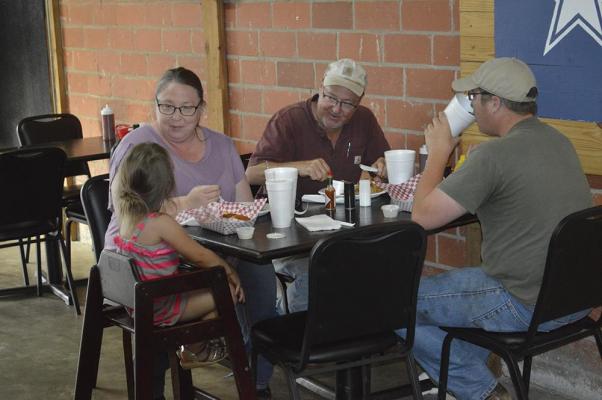Back in Business
By John Meng, Publisher/Editor
For the past seven weeks, city sidewalks and businesses have seemed desolate and lifeless. Business doors were locked to customers and restaurant parking lots emptied due to government orders issued to prevent the spread of the coronavirus.
But Jackson County businesses and residents now have a glimmer of hope that a return to normalcy may not be far off.
Last week, Texas Governor Greg Abbott unveiled the first phase of Texas’ plan to safely and strategically open Texas while minimizing the spread of COVID-19.
According to the plan which began on Friday, May 1, 2020, Texas initiated a gradual reopening of retail stores, restaurants, movie theaters and other businesses.
Certain services and activities are allowed to open with limited occupancy, and the Texas Department of State Health Services (DSHS) is issuing minimum standard health protocols for all businesses and individuals to follow.
According to Executive Order (GA-18), all retail stores, restaurants, movie theaters, and malls were permitted to reopen. These services must limit their capacity to 25 percent of their listed occupancy. Within shopping malls, the food-court dining areas, play areas, and interactive displays and settings must remain closed.
However, the Governor’s new plan takes into consideration geographical and situational conditions. For example, while many counties will be limited to 25 percent of their listed occupancy, the counties with fewer than five COVID-19 cases will be allowed to open at 50 percent of listed occupancy.
“Getting back to business is critical for our retailers and our residents, but how we do it is just as crucial,” said Jackson County Judge Jill Sklar. “Reopened services can operate at 25 percent capacity. This is a positive step and we need to support local businesses rather than spending money outside of Jackson County. This is a two-fold solution; it keeps our money in the county and the virus out.
“Local leaders will continue to monitor our progress keeping a close eye on the effects the re-opening has on the spread of the virus. The key to moving forward is being smart and considerate as we get back into the community.”
Judge Sklar added, “We know that the virus is still present so give each other the space they need to be comfortable, wash your hands, and wear a mask when practical. The quicker we can establish that we can get things going without a resurgence, the sooner we will be back at 100 percent.”
While Gov. Abbott is cracking open the door for businesses, he also advises caution.
“Now more than ever, Texans must remain committed to safe distancing practices that reduce the spread of COVID-19, and we must continue to rely on doctors and data to provide us with the safest strategies to restore Texans' livelihoods,” said Abbott. “We must also focus on protecting the most vulnerable Texans from exposure to COVID-19. If we remain focused on protecting the lives of our fellow Texans, we can continue to open the Lone Star State.”
In addition, the Phase 1 plan allows all museums and libraries to open under the same occupancy limitation, but interactive areas of museums must remain closed. State libraries and museums were to open by May 1, and local public museums and libraries may reopen only if permitted by the local government. Single-person offices may reopen as well.
Churches and places of worship remain open.
Outdoor sports are allowed to resume so long as no more than four participants are playing together at one time. Certain social distancing practices must also be followed.
Essential services such as farmers and ranchers, grocery and drug stores, banks, and gas stations will continue to operate. Public swimming pools, bars, gyms, cosmetology salons, massage establishments, interactive amusement venues, such as bowling alleys and video arcades, and tattoo and piercing studios will remain closed through Phase I.
Local government operations, including county and municipal government operations relating to permitting, recordation, and document-filing services, may reopen as determined by the local government. Nursing homes, state supported living centers, assisted living facilities, and long-term care facilities must remain closed to visitors unless to provide critical assistance.
Phase I will continue until at least May 18. The Governor will continue to evaluate next steps for the state.
In his Executive Order GA-19, Governor Abbott also relaxed certain restrictions related to health care professionals and issued amended requirements related to hospital capacity.
With the new order, Executive Order, licensed hospitals shall reserve at least 15 percent of its hospital capacity for treatment of COVID-19 patients, accounting for the range of clinical severity of COVID-19 patients, as determined by HHSC. Additionally, the Governor issued an Executive Order GA-20 to eliminate the mandatory 14-day quarantine period for individuals traveling from Louisiana. The mandated 14-day quarantine remains in effect for travelers coming from California; Connecticut; New York; New Jersey; Washington; Atlanta, Georgia; Chicago, Illinois; Detroit, Michigan, and Miami, Fla.

